From 'course manipulation' to 'too little gravel': the first European (and Belgian) Gravel Championships were a resounding success, but...
CyclingTuesday, 03 October 2023 at 12:24
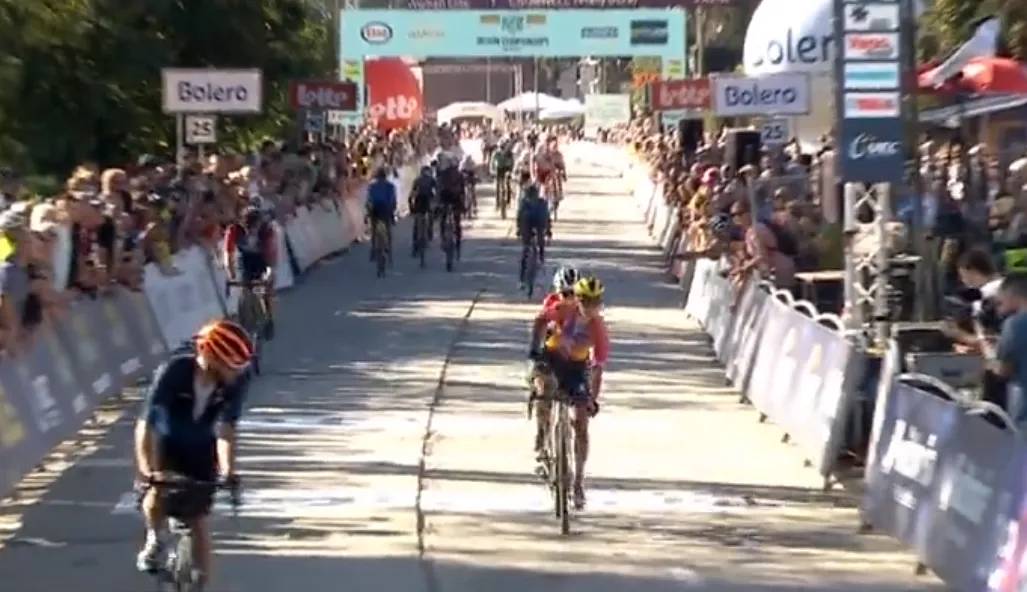
The organizers of the inaugural European Championship (and Belgian Championship) gravel can look back on the debut edition with great satisfaction, and rightly so. With 1600 participants from 30 different European countries across various categories, they have clearly hit the mark. Furthermore, the crowning of two superb champions, Jasper Stuyven and Lorena Wiebes, made it an exceptionally successful event. However, both the participants and spectators had some concerns and critiques regarding the championship.
ADVERTISEMENT
"The European Gravel Championship was a resounding success. What an organization, what an atmosphere, and my hat's off to Sporza for their outstanding coverage. I witnessed a lot of talent on display at all levels," tweeted Sven Nys after the afternoon race in Oud-Heverlee, a municipality located just a stone's throw from Leuven. Nys had seen his son Thibau Nys go off course earlier that afternoon due to a slide but was nonetheless highly satisfied with the proceedings in Flemish Brabant. Thijs Zonneveld, a BEAT Cycling Club rider and columnist for AD, who finished 26th among the elite men, also shared his thoughts on the European Championship on Twitter talking about the European Championship. "Took part in the European Gravel Championship. The level was absurdly high; I trailed from the start and never managed to catch up with the leaders. I finished around 30th place. But what a splendid course, and the enthusiastic crowd was everywhere. Gravel has certainly lived up to the hype," he praised. Tim Merlier also expressed to In de Leiderstrui, among others, that he found it to be a wonderful event.
'Critics' Mainly Focus on 'Asphalt Course' and Congestion
ADVERTISEMENT
However, there has been notable criticism as well. For instance, Tessa Neefjes, who clinched this year's UCI Gravel World Series final classification and initially started the European Championship with road tires, hinted to this website that she wasn't entirely satisfied with the route of the 131-kilometer women's race. "People are quick to label something as gravel or a gravel course, but for me, it was somewhat different. There was a significant amount of asphalt involved in the detours. We maintained an average speed of 33 kilometers per hour. That's not something you can achieve in any UCI Gravel World Series race," she remarked.
The criticism wasn't solely focused on the course itself but also on the ensuing commotion caused by riders from different age categories who had been dropped or lapped. Among spectators (and those watching at home), the phrase 'pure course distortion' was frequently heard. "It truly turned into a massive chaos. In the end, it became a matter of who could keep pace with the men the longest, determining the winner," Neefjes observed. "At one point, the four of us broke away and ended up in a group with male riders. It was a nice little group, and in this instance, it actually worked out quite well because those men were pulling nicely for us!", told Wiebes in turn.
Read more below the photo!
ADVERTISEMENT
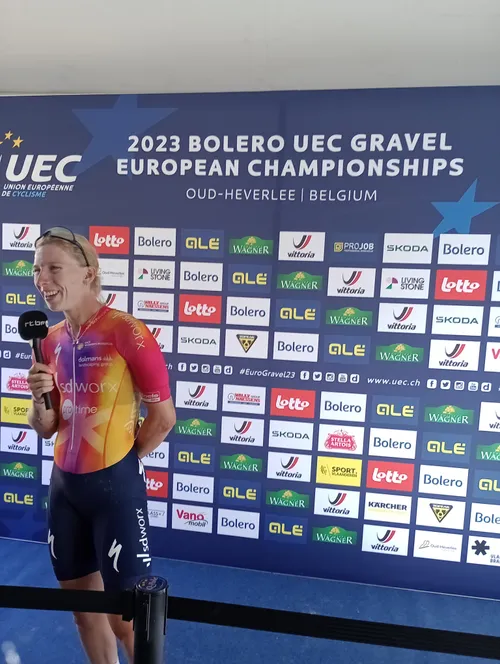
Freshman European champion Wiebes shares her personal story of the day
Even Cromwell, who won yet didn't quite win, had some critical remarks about the event. "As a gravel community, we need to find a solution because it's evident that this does impact the racecourse. After all, in the end, we also benefited from it," she commented. Zonneveld, within the same Twitter thread where he expressed his praise, also voiced some criticism regarding riders going everywhere and anywhere in between. "A solution needs to be found for all those overlapping races. It's challenging to follow the race this way," he means.
'Paul Voss was pleading for nearly an hour'
But did it end there? Not exactly. After the various races, there was quite a bit of confusion surrounding the podium ceremonies and final results. Many journalists in the mixed zone were approached by riders or their team managers seeking the final results for specific categories. However, little information was available, even to the race officials. Questions like "Do I need to go to the podium or not?" were commonplace. At one point, even Paul Voss, who finished third in the elite men's category, was in a state of uncertainty. He seemed to be missing for almost an hour, while young rider An-Sofie Marien repeatedly expressed frustration about the slow pace of the race. "After an hour, I still don't know if I'll have a medal in my hands later," she remarked with a laugh.
Nevertheless, these initial challenges should be viewed with understanding. After all, it's the inaugural European Championship (and Belgian Championship), so occasional mishaps (or similar confluence of events) are par for the course. However, the course itself will likely remain a topic of discussion for some time to come. The 2024 World Gravel Championships are scheduled to take place on the same course as this year's European Championships, which may not sit well with purist gravel enthusiasts. Nonetheless, gravel remains gravel, and gravel riding continues to be an exciting pursuit!
ADVERTISEMENT
IDL-productions
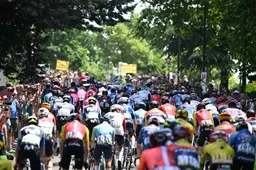
Vacancy: Growth Editor IDL Procycling - (native) English
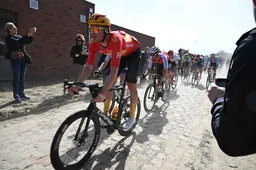
Omloop Het Nieuwsblad 2026 | The Wærenskjold scenario looks less realistic this time

Favorites stage 7 UAE Tour 2026 | One last time, all brakes off
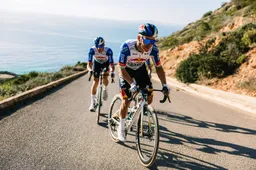
Favorites Stage 6 UAE Tour 2026 | Evenepoel has one major disadvantage in his hunt for redemption

Quinn Simmons is back on European soil, driven by special memories of the Netherlands
Latest Cycling News

Vacancy: Growth Editor IDL Procycling - (native) English
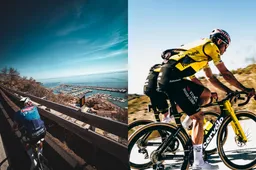
Final build-up to Omloop? Van der Poel and Van Aert put in the work in Spain
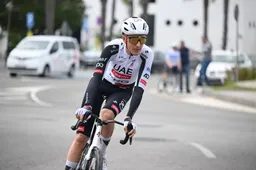
Zonneveld questions Soler in doping case: “Why on earth do lactate tests with a suspended doctor?”
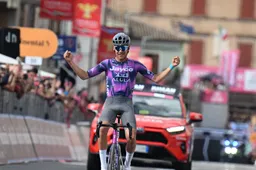
After outstanding UAE Tour, Plapp hopes to finally deliver on GC promise: “Biggest goal of the year”
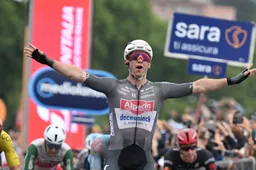
Outsider Groves knows what’s required: packed schedule includes Giro, Tour and the Classics
Popular Cycling News
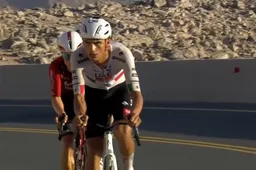
Rival has seen enough at UAE Tour: “Isaac del Toro could become even bigger than Tadej Pogacar”
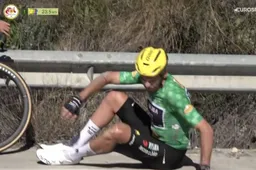
Visma | Lease a Bike issue update on crashed Christophe Laporte

Zonneveld questions Soler in doping case: “Why on earth do lactate tests with a suspended doctor?”
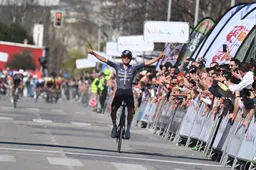
Tom Pidcock openly admits after victory: “Yes, I was frustrated”
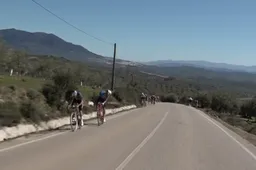
Pidcock hits out hard, but can’t stop Romeo’s Ruta del Sol overall win as Visma | Lease a Bike lose Laporte
Latest Comments
- They were close to cracking a very tired Tadej that wasn't fully focused on the TdF with a team of riders focused solely on cracking Tadej. And if they cracked him, he would have still won. Tadej won't be racing the giro this year. It'll be an even easier win for him.Veganpotter09-02-2026
- Nice!Bea22-01-2026
- Those events are mental rest for him. Fun, without expectations. *Sagan lost his abilities because he gained weight and got lazy. Pogi will likely retire before that has a chance at happening.Veganpotter14-12-2025
- Ah, the consequences of riding for Israel.Veganpotter11-12-2025
- Pidcock could follow everyone but Pogi while finishing 3rd. No second place rider this season😃Veganpotter16-11-2025
- Now the Palestinian protestors can stop their whining. Trump came to the rescue. So they can now STFU and go back to waving the rainbow flags.raufus15-10-2025
- Cracked the code lol. If it was that easy to 'crack the code' jonny Vegas would be charging up the Kwaremont giving Pog a dose of his medicine. Evenepoel can't match pog on a climb and neither can mvdp. Anything with a half difficult climb and Pog smashes the field. Even on flat(ish)parcours like Roubaix it came down to a mistake and crash by pog to definitively crown mvdp. MSR is the only one that Pog probably won't win.kevpt10-10-2025
- We've seen this movie before. I think Pogacar is doping.DeadBlow10-10-2025
- 👍Bea08-10-2025
- 👌🏻Bea08-10-2025
Loading